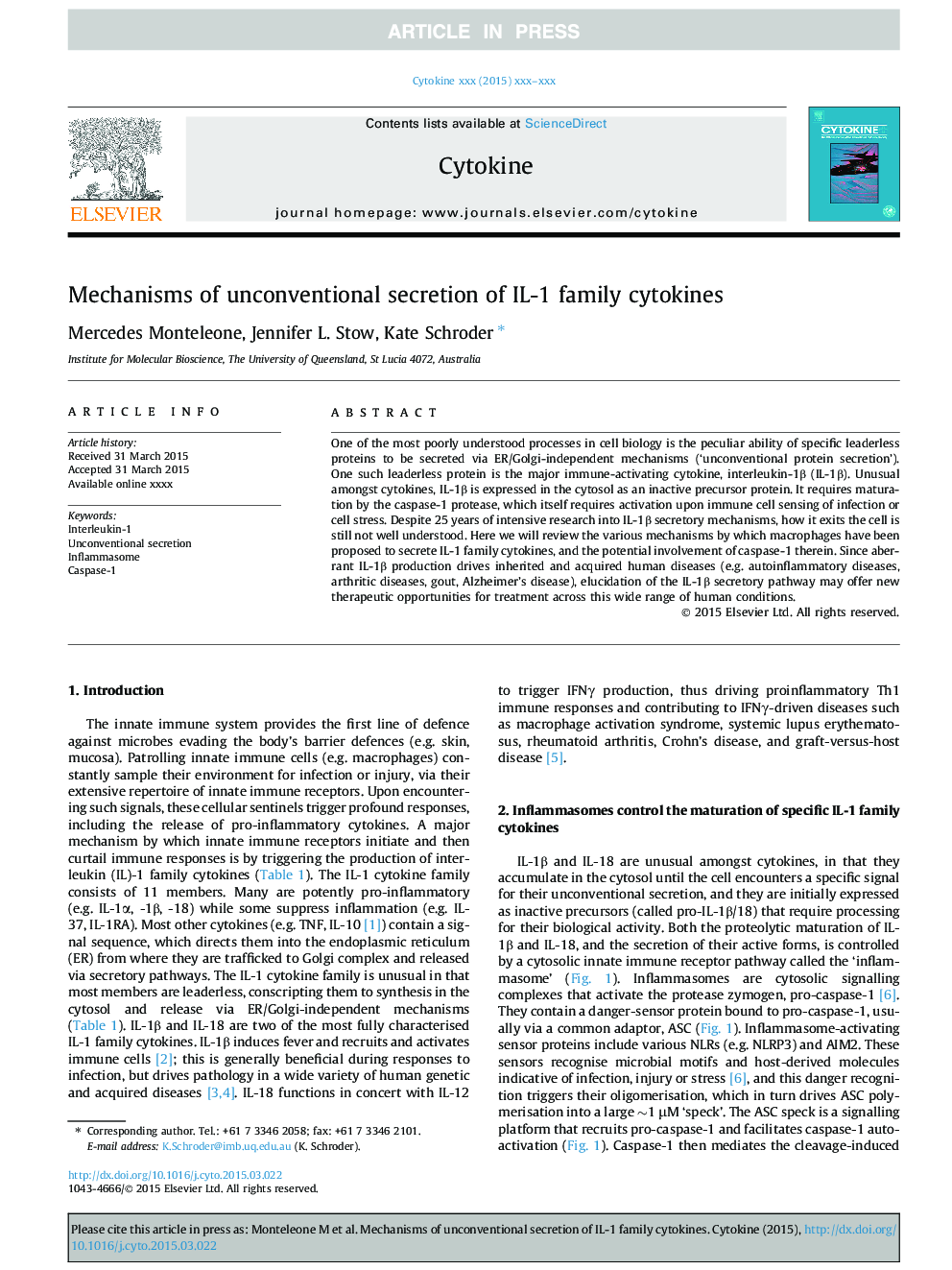| Article ID | Journal | Published Year | Pages | File Type |
|---|---|---|---|---|
| 5896965 | Cytokine | 2015 | 6 Pages |
Abstract
One of the most poorly understood processes in cell biology is the peculiar ability of specific leaderless proteins to be secreted via ER/Golgi-independent mechanisms ('unconventional protein secretion'). One such leaderless protein is the major immune-activating cytokine, interleukin-1β (IL-1β). Unusual amongst cytokines, IL-1β is expressed in the cytosol as an inactive precursor protein. It requires maturation by the caspase-1 protease, which itself requires activation upon immune cell sensing of infection or cell stress. Despite 25 years of intensive research into IL-1β secretory mechanisms, how it exits the cell is still not well understood. Here we will review the various mechanisms by which macrophages have been proposed to secrete IL-1 family cytokines, and the potential involvement of caspase-1 therein. Since aberrant IL-1β production drives inherited and acquired human diseases (e.g. autoinflammatory diseases, arthritic diseases, gout, Alzheimer's disease), elucidation of the IL-1β secretory pathway may offer new therapeutic opportunities for treatment across this wide range of human conditions.
Related Topics
Life Sciences
Biochemistry, Genetics and Molecular Biology
Endocrinology
Authors
Mercedes Monteleone, Jennifer L. Stow, Kate Schroder,
